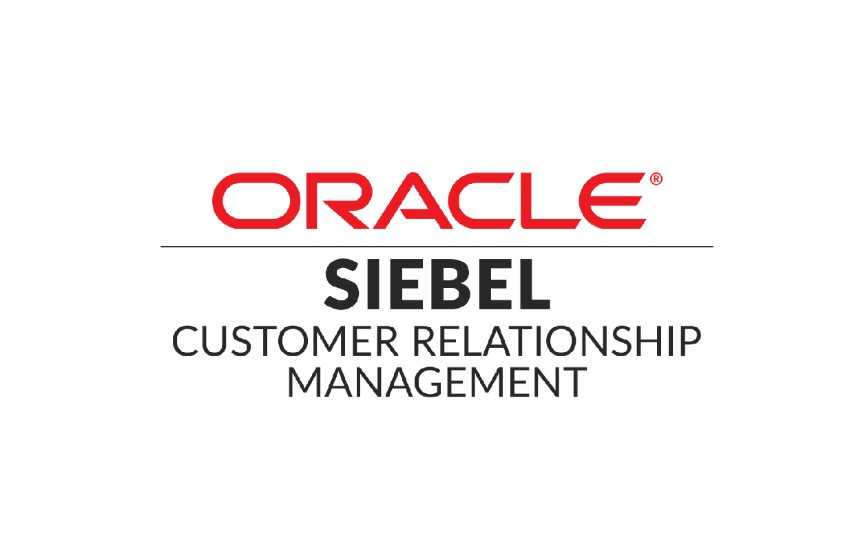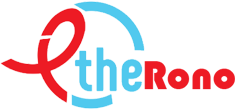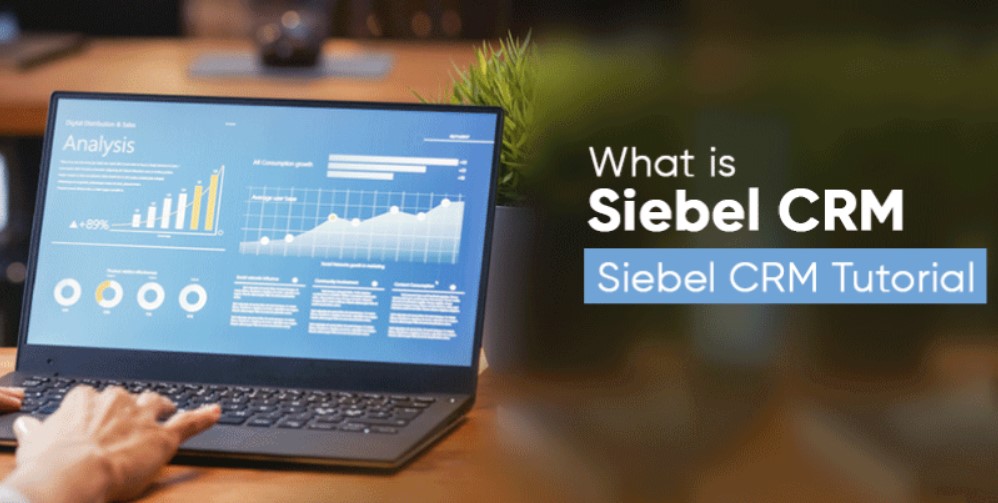Siebel CRM, short for Siebel Customer Relationship Management, is a comprehensive software solution designed to help businesses manage their customer interactions and relationships effectively. Developed by Siebel Systems in 1993 and later acquired by Oracle Corporation in 2006, Siebel CRM has become a prominent player in the CRM software market. This robust platform offers a wide array of features and functionalities that cater to various aspects of customer relationship management, sales force automation, and marketing campaign management.
In today’s highly competitive business landscape, maintaining strong customer relationships is crucial for success. Siebel CRM provides organizations with the tools and capabilities necessary to streamline their customer-centric processes, improve customer satisfaction, and drive business growth. This tutorial aims to provide a comprehensive overview of Siebel CRM, its key features, benefits, and applications, making it an ideal resource for beginners looking to understand this powerful CRM solution.
The Evolution of Siebel CRM

Siebel CRM has come a long way since its inception in the early 1990s. Founded by Thomas Siebel and Patricia House, Siebel Systems quickly gained recognition for its innovative approach to customer relationship management. The company’s rapid growth and market dominance led to its acquisition by Oracle Corporation in 2006, further solidifying its position as a leading CRM solution.
Over the years, Siebel CRM has undergone numerous updates and improvements to keep pace with evolving business needs and technological advancements. The platform has transitioned from a primarily on-premises solution to offering cloud-based deployment options, providing businesses with greater flexibility and scalability. Today, Siebel CRM continues to be a preferred choice for many large enterprises and organizations across various industries, thanks to its robust features and proven track record.
Key Features of Siebel CRM
Siebel CRM offers a comprehensive set of features designed to address various aspects of customer relationship management. Some of the key features include:
- Sales Force Automation: Siebel CRM provides tools to streamline and automate sales processes, including lead management, opportunity tracking, and forecasting. This enables sales teams to work more efficiently and close deals faster.
- Customer Service and Support: The platform offers robust case management capabilities, knowledge bases, and self-service portals to enhance customer support and improve resolution times.
- Marketing Automation: Siebel CRM includes features for campaign management, lead nurturing, and marketing analytics, allowing businesses to create and execute targeted marketing initiatives.
- Analytics and Reporting: The system provides powerful reporting and analytics tools that help businesses gain valuable insights into customer behavior, sales performance, and overall business metrics.
- Mobile Access: Siebel CRM offers mobile applications that allow users to access critical customer information and perform tasks on-the-go, increasing productivity and responsiveness.
- Integration Capabilities: The platform can be integrated with various third-party applications and systems, enabling seamless data flow across the organization.
- Industry-Specific Solutions: Siebel CRM offers tailored solutions for various industries, including financial services, healthcare, and telecommunications, addressing sector-specific needs and requirements.
Benefits of Implementing Siebel CRM
Implementing Siebel CRM can bring numerous benefits to organizations of all sizes. Some of the key advantages include:
- Improved Customer Relationships: By centralizing customer data and providing a 360-degree view of customer interactions, Siebel CRM enables businesses to deliver personalized and consistent customer experiences across all touchpoints.
- Increased Sales Efficiency: The sales force automation features help streamline sales processes, reduce administrative tasks, and provide sales teams with the tools they need to close deals more effectively.
- Enhanced Marketing Effectiveness: With its marketing automation capabilities, Siebel CRM allows businesses to create targeted campaigns, track their performance, and generate qualified leads more efficiently.
- Better Decision Making: The robust analytics and reporting features provide valuable insights into business performance, customer behavior, and market trends, enabling data-driven decision-making.
- Improved Collaboration: Siebel CRM facilitates better communication and collaboration between different departments, ensuring that everyone has access to the most up-to-date customer information.
- Scalability and Flexibility: The platform can be customized and scaled to meet the evolving needs of growing businesses, making it a long-term solution for customer relationship management.
Getting Started with Siebel CRM
For beginners looking to implement Siebel CRM, it’s essential to follow a structured approach to ensure a successful deployment. Here are some steps to get started:
- Assess Your Needs: Begin by evaluating your organization’s specific CRM requirements, including the features and functionalities that are most critical to your business processes.
- Plan Your Implementation: Develop a comprehensive implementation plan, including timelines, resource allocation, and budget considerations. Consider engaging with Oracle or certified Siebel CRM partners for expert guidance.
- Data Migration: Prepare for data migration by cleaning and organizing your existing customer data. Ensure that the data is formatted correctly for seamless integration into Siebel CRM.
- Customization and Configuration: Work with your implementation team to customize and configure Siebel CRM to align with your business processes and workflows.
- User Training: Develop a training program to ensure that all users are comfortable with the new system. This may include hands-on training sessions, documentation, and ongoing support.
- Testing and Quality Assurance: Conduct thorough testing of the system to identify and resolve any issues before going live. This includes functional testing, integration testing, and user acceptance testing.
- Go-Live and Support: Plan for a smooth go-live process, including data cutover and system switchover. Ensure that adequate support is available during the initial phase of implementation.
Best Practices for Siebel CRM Implementation
To maximize the benefits of Siebel CRM, consider the following best practices:
- Executive Sponsorship: Secure strong executive support for the CRM initiative to ensure adequate resources and organizational buy-in.
- User Adoption Strategy: Develop a comprehensive user adoption strategy to encourage widespread use of the system across the organization.
- Data Quality Management: Implement processes and tools to maintain high-quality customer data within the CRM system.
- Continuous Improvement: Regularly review and optimize your CRM processes to ensure they remain aligned with evolving business needs.
- Integration with Other Systems: Integrate Siebel CRM with other critical business systems to create a seamless flow of information across the organization.
- Regular Updates and Maintenance: Stay current with Siebel CRM updates and patches to ensure you have access to the latest features and security enhancements.
Common Challenges and Solutions
While implementing Siebel CRM can bring significant benefits, organizations may face certain challenges. Here are some common issues and potential solutions:
- User Resistance: Address user resistance by clearly communicating the benefits of the system, providing comprehensive training, and involving users in the implementation process.
- Data Quality Issues: Implement data cleansing and validation processes, and establish ongoing data governance practices to maintain data quality.
- Complex Customizations: Carefully evaluate the need for customizations and consider using out-of-the-box features where possible to reduce complexity and maintenance costs.
- Integration Challenges: Work with experienced integration specialists to ensure smooth data flow between Siebel CRM and other systems.
- Performance Issues: Regularly monitor system performance and optimize configurations to ensure optimal performance as your data volume grows.
Future Trends in Siebel CRM
As technology continues to evolve, Siebel CRM is adapting to meet new challenges and opportunities. Some emerging trends in Siebel CRM include:
- Artificial Intelligence and Machine Learning: Integration of AI and ML capabilities to provide predictive analytics, intelligent automation, and enhanced customer insights.
- Enhanced Mobile Capabilities: Continued focus on improving mobile experiences for users, enabling greater productivity and responsiveness.
- Cloud-Based Solutions: Increased emphasis on cloud deployment options, providing greater flexibility and reducing infrastructure costs.
- Internet of Things (IoT) Integration: Leveraging IoT data to provide more comprehensive customer insights and enable proactive service delivery.
- Advanced Analytics: Development of more sophisticated analytics tools to help businesses derive actionable insights from their customer data.
Siebel CRM remains a powerful and comprehensive solution for organizations looking to enhance their customer relationship management capabilities. By providing a centralized platform for managing customer interactions, sales processes, and marketing initiatives, Siebel CRM enables businesses to deliver exceptional customer experiences and drive growth.
As you embark on your Siebel CRM journey, remember that successful implementation requires careful planning, user engagement, and ongoing optimization. By following best practices and staying attuned to emerging trends, you can leverage the full potential of Siebel CRM to transform your customer relationships and achieve your business objectives.

